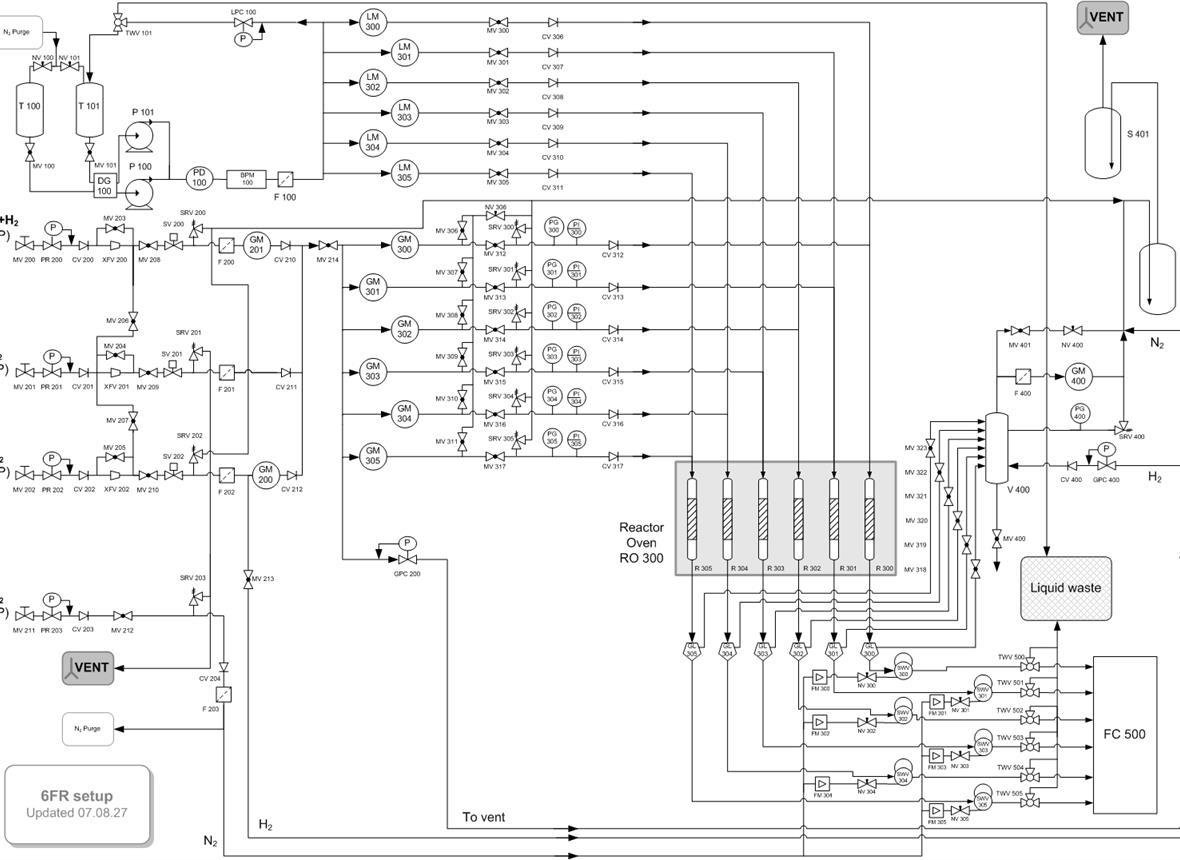Abstract
SAPO-34 zeolite is one of the most well-studied methanol-to-olefin catalysts, with applications from laboratory to commercial scale. Here, we have studied the impact on the properties and performance of different modifications of a commercial zeolite, including thermal, acid, and alkaline treatments, along with its agglomeration with bentonite and alumina required in the technical catalyst. We prepared three zeolites and agglomerated them, making a total of seven materials, along with our benchmark catalyst. These were characterized and tested in a packed bed reactor. We analyzed the conversion, yield, and deactivation (coke) based on the effective acid site density ρAS* (a parameter correlating acid strength, density, and micropore volume). Thermal treatment increased the effective acid site density of the commercial zeolite by 60%, while only a 10% increase was found in the parent agglomerated catalyst. Acid etching increased the effective acid site density by 80%, while the basic treatment completely amorphized the framework of the zeolite. After agglomeration, the performance of the catalysts (by means of olefin production and deactivation) correlated with effective acid site density. The catalysts based on thermally and acid-treated zeolites performed best, while they had the lowest effective acid site density.
Keywords
HCE
C2H
